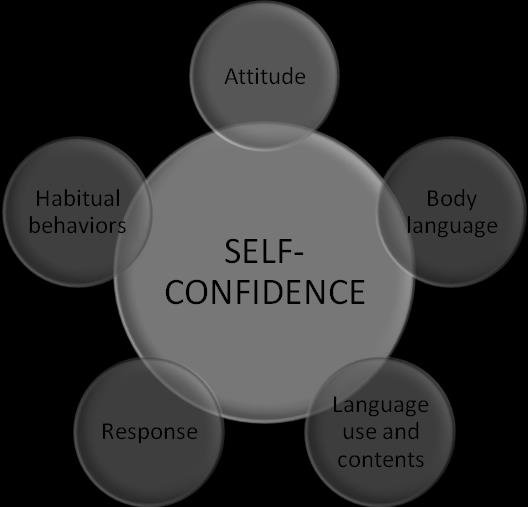
I have realized that self-confidence is a key driver for effective communication. It is important in both personal and professional spheres, not just something that would be nice to have.
Confidence in communication cannot be overemphasized since it’s the one thing that makes all the difference between ordinary information sharing and making lasting impressions, between fading into backgrounds and owning attention with an authoritative voice full of authenticity.
Confidence in communication cannot be overemphasized…
Let me go deeper and explain the idea of self-assurance as well as its impact on communication. Many people mistakenly believe that confidence is all about wearing a bold face or appearing certain. However, it is a complex matter
derived from deep internal knowledge of oneself and trust in one’s abilities.
Self-confidence is ultimately rooted in a basic belief in your abilities, ideas and inherent value. It’s about acknowledging and realising that your unique talents, experiences and viewpoints are important contributions to the dialogue. This unshakable confidence enables you to speak with truthfulness and force under any circumstances or obstacles.
Furthermore, self-assurance does not mean that one is free from fear; it means taking risks while being fearful. It means accepting that development and novelty often come as a result of moving beyond what one is used to doing comfortably by tackling unfamiliar situations. In communication, this implies owning up to your voice and asserting yourself even when faced with disbelief or contradiction.
Confidence is not about wearing a bold face… It’s about deep internal knowledge of oneself and trust in one’s abilities.
For example, pretend you have been assigned the responsibility for leading a high-risk project at work. No matter how knowledgeable or well-prepared you might be, there will always be elements of uncertainty involved in such ventures. Instead of giving in to doubt or worrying about making mistakes, however, you decide to embrace vulnerability by openly acknowledging the issues and possible problems ahead of you.
When team meetings are held, you ensure open discussions with the rest of the colleagues and appreciate their different perspectives on matters that can add value to projects. In addition, you continuously express your doubts and fears making it a safe space for every individual.
Apart from these, you also encourage vulnerability which will make your members reach a state of trust. As if that is not enough; they see in you a leader who does not shy away from showing weaknesses or asking for help when they need it thereby creating an atmosphere of candidness and collaboration.
A confident leader does not shy away from showing weaknesses or asking for help.
Self-confidence is a fluid characteristic one acquires through effort or training. It is not an inborn trait; rather it is an ability that can be improved and sharpened over time. This process of self-discovery begins with self-reflection, recognizing one’s strengths, limitations, and values. This implies thinking about what has happened before, finding areas where changes should take place as well as developing goals aimed at surpassing your limits presently.
Building confidence means being willing to feel uncomfortable by stepping outside your comfort zone. This could involve taking on new responsibilities at work or volunteering for leadership roles in various committees. You will gradually stretch your comfort zone while building resilience as you confront fear directly and accept uncertainty.
However, self-belief is not restricted to outside acts; it also includes a mental state. It necessitates challenging the negativity that frequently clouds your mind from continuous self-talks and self-doubts. As such, you must recognize when your inner critic prevents you from moving forward as well as consciously choose new thoughts which affirm your value and power.
In essence, developing self-esteem is an all-encompassing process with respect to internal growth and external change. This means creating a constructive personal image, finding opportunities in difficulties for enhancing oneself, and building up inner strength to recover from stumbling stronger than ever before. When one is dedicated enough to work through any obstacle that may come along their path, they can unlock the endless possibilities that lie within them.
Self-confidence is not an inborn trait; it is an ability that can be improved and sharpened over time.
Speaking confidently with certainty resonates in others making feel you trustworthy. Confidence attracts people due to its indication of competence as well as reliability and genuineness among other things. Additionally our most confident selves can help us convince even the reluctant ones
Beyond just perception, self-assurance nurtures deep relationships. When you communicate confidently, it creates an open environment for trust and invites others to do the same. This mutual exchange of confidences fosters comradeship, cooperation and mutual assistance in building strong lasting relationships.
Speaking confidently resonates in others, making them feel you trustworthy.